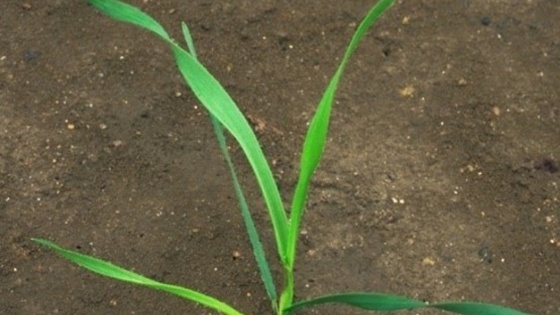Control of Sterile/Barren brome
Although sterile/barren brome has a propensity to produce high levels of seed per plant, these seeds are often immature at harvest and may take 2-4 weeks of additional ripening prior to germination. Leaving soils undisturbed post-harvest will encourage seed to mature. Germination is triggered by light and any shallow tine operation should aim to move crop residue and only move the minimum amount of soil possible. Simply moving straw can stimulate a flush of seedlings, once seed has matured.
Sterile/barren brome can thrive in both well-drained and consolidated soils, but seed survival can be greater in heavier, more consolidated, undisturbed soils once seed has been buried. The natural tendency of clay soils to shrink and crack to depth during dry conditions can promote seed burial. This can be countered to some extent by building soil organic matter levels and ensuring soil has adequate Calcium. However, if high levels of Calcium are applied, for example to correct soil pH rather than to condition soil, the following crop may experience a transient Phosphorous lock-up that delays germination, establishment and early growth, reducing competition with brome. Direct-drilled crops, including cover crops, tend to be more affected by this.
Once the initial weed flush has been controlled, shallow soil disturbance can trigger weed and volunteer germination, making stale seedbed techniques more effective.
The application and incorporation of organic materials such as manures, composts and digestates, and any soil disturbance associated with the establishment of cover crops, should be delayed until after the initial post-harvest flush of weeds has been controlled.
Although addressing drainage and compaction issues will have little impact on this weed and its ability to establish quickly in an autumn-sown crop, any soil-related issue that affects crop establishment, development or nutrient uptake will place the weed at a competitive advantage.
While delaying soil management operations can enhance weed control, delaying the establishment of the following crop can have associated yield penalties. Nutritional seed treatments, the application of placement, or starter, fertilisers and the inclusion of nutrients such as Phosphorous in early foliar treatments can be help to minimise this.

Soil Management
Our Expert
Neil Fuller
Our expert on weed control through soil management is Neil Fuller. Soils health is the capacity of soil to function as a living system. Healthy soils maintain a diverse community of soil organisms that help to control plant disease, insect and weed species. Soil health is influenced by the dynamic interactions that occur between the physical, chemical and biological components of the soil. Measuring soil health is therefore crucial in order to keep these interactions in balance.

